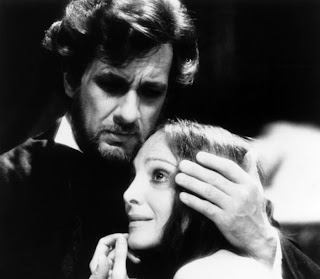I had hiked the long, steep trail, cane in hand, from old Assisi to Mount Subasio.
I visited Francis’s favourite hole in the wall (literally), and walked the paths around the sanctuary of the ‘Eremo delle Carceri.’ After several hours of walking and contemplating on an increasingly sore ankle, I hitchhiked the road back to town. It's amazing how a hike up a mountain can take hours, and a car ride down a mountain can take 10 minutes. I descended the steps to San Damiano, and sang vespers with the gathered faithful. I ascended those steps again, cane still in hand, and I was approaching the familiar gelato shop where I had first met Armando and Mariella and Giovanni. It was about 9 o’clock, and it had been a very good day, and a very long day. I was ready to return to my room and call it a night, but the gelato seemed to whisper my name, and I made my way toward the glowing street sign for one last creamy treat to finish the day. As I approached, I saw a familiar face.
“Ahron! Ciao!” Armando called. He stood on the street with Mariella and Giovanni, talking with a large friend with a long, white beard.
“Armando! Mariella! Ciao!” I said. I shook Giovanni’s hand vigorously enough to get a laugh. “And Giovanni!” (Violently shaking a kids hand for a ludicrously extended time is quickly becoming my old-guy, standby kid joke. It’s a good one!)
They introduced me to their friend, who could easily pass for either an Italian hippy or an American biker. “This is Nuli,” Armando told me, “He own the, ah, the field. Where we camp.”
I shook his hand. “I don’t see too many Italians with beards like ours,” I said as I greeted him. It didn’t take long for the three of us to start talking and joking about beards.
I recalled a conversation I’d had in Rome about my beard. “You looka like barboni!” he’d said. “‘Barba’ is beard. ‘Barboni’. Man who have no home. Tramp. You look like that movie… ah… ‘Into The Wild’! Ha ha ha!” Since the man was formerly homeless himself, I’d taken it as a compliment.
I pulled out the reference. “We are like barboni!” I said. They loved that one.
“Ha! Si, si! Barboni!” Armando laughed. It felt pretty good to communicate a joke in Italian.
We had a good laugh, and I lit my pipe, and Armando rolled a cigarette.
Then Saint Francis came along.
I’d seen this man around Assisi a couple of times. I was not sure if he was devout, or crazy. He dressed in a habit or tunic that seemed to have come straight out of the 13th century, carried a staff, and walked barefoot. I’d even snapped his picture on the sly, a bit awed by someone who was so clearly either a saint, a badass, or a crazy guy. As it turned out, he may have been a bit of each.
“Masseo!” Armando called. “Vieni qui! This is Brother Masseo.”
I shook his hand. “Ciao,” I said. “Mi nomé Aaron.” He nodded and smiled briefly, and quickly became entwined in serious conversation with Mariella.
“I’ve seen him around town,” I told Armando. “Is he Franciscan?”
“Mmm… Yes. But his own. He has been dressing like this for just a few years now. For a while, he was…mmm…come si dice... ex, ah…. No communion. But now, yes.”
I noted his beard, and this began another exchange of hardy laughs. I would not have guessed that a cross-cultural pun about beards would have gotten this much mileage, but that was just fine with me. A few minutes later, we were standing together for a group photo of the “quattro barboni”, the four tramps in a row, while Giovanni took my dying camera and its feeble flash and attempted to get a picture.
Giovanni snapped a few blurry shots before my camera finally died. There was plenty of back-slapping and smiles, and just as I was getting ready to bid everyone a buono notte, Armando asked me a question.
“Have you eat?”
“Uhm… No,” I answered.
“Would you like to come to our camp for food? For dinner?”
In an instant, I reviewed the itinerary I’d kept that day, my palm a little cramped from gripping that blessed cane. Armando’s camp was half way back down the hill to San Damiano. It was nearing 10 o’clock. My legs were tired. My feet were tired. My injured ankle needed rest. And I knew the wisest answer to Armando’s question.
“Si.”

